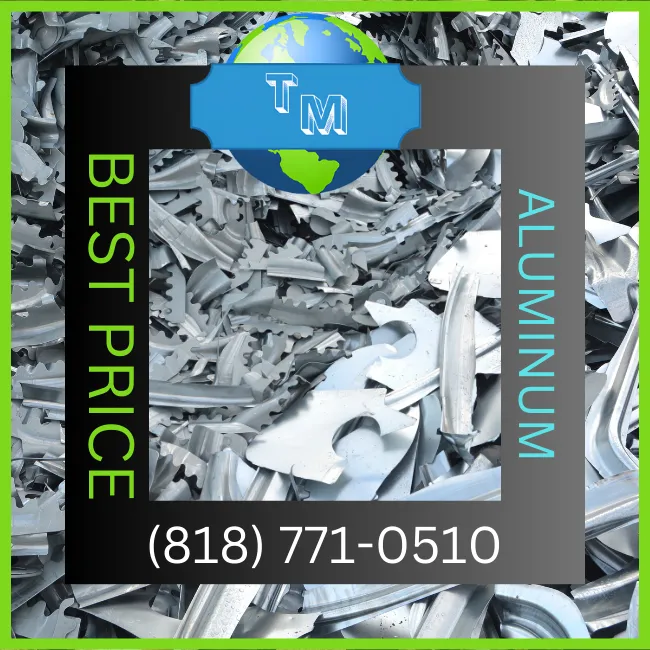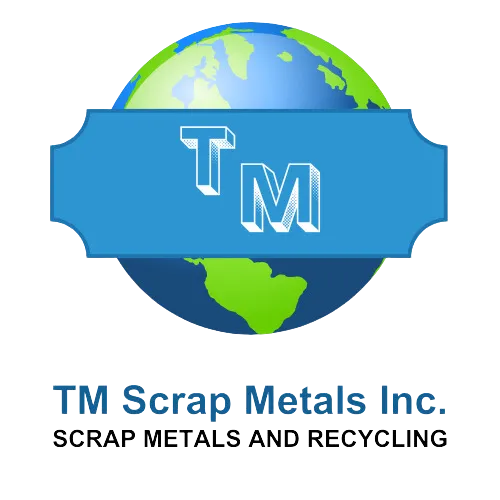Sponsored





Wire Recycling in Sun Valley
Top Local Services For Copper, Aluminum & Insulated Wire Recycling
Got scrap wire to recycle in Sun Valley? Local recyclers offer fast, fair, and eco-friendly services for all types of wire, including copper, aluminum, and insulated varieties. Whether you're clearing out old electrical wiring or handling commercial scrap, these professionals ensure efficient processing and competitive rates. Browse trusted wire recycling centers in Sun Valley today!
Wire Recycling in Sun Valley: Why Hire a Professional Service
Unraveling the Benefits of Professional Wire Recycling for Efficiency and Sustainability
The Importance of Wire Recycling in Sun Valley
Wire recycling in Sun Valley has become increasingly vital as construction, electronics, and infrastructure projects generate large volumes of wire waste. From copper and aluminum electrical wires to telecommunication cables, proper recycling prevents valuable materials from being lost in landfills and supports environmental responsibility.
Many wires contain non-biodegradable insulation and complex metal mixtures, making them difficult to recycle without the right equipment and expertise. Professional services ensure these components are processed efficiently, recovering valuable materials while minimizing environmental impact.
Why Hire a Professional Wire Recycling Service
A professional wire recycling service in Sun Valley offers safe, effective, and environmentally responsible solutions. Stripping and sorting wires can be dangerous and labor-intensive. Professional recyclers are trained to manage these materials using specialized equipment and techniques.
These services also offer financial benefits. By understanding current market values and metal types, professionals can provide accurate assessments and fair compensation. They also comply with all local environmental regulations, protecting clients from legal risks.
Additionally, professionals enhance the overall efficiency of the recycling process by handling large volumes quickly and ensuring the highest possible material recovery rate. Their efforts significantly reduce the need for new raw materials and help lower greenhouse gas emissions.
Choosing the Right Wire Recycling Partner in Sun Valley
When selecting a wire recycling service in Sun Valley, consider companies with a strong reputation for reliability, transparency, and environmental commitment. An experienced provider will offer clear pricing, documentation, and responsive customer support.
Local providers are especially advantageous—they are familiar with regional recycling standards and can respond swiftly to service requests. Many also support Sun Valley’s sustainability goals through community engagement and education.
In conclusion, hiring a professional wire recycling service is a smart move for both individuals and businesses. It ensures safe disposal, maximizes value recovery, and contributes to a cleaner, more sustainable Sun Valley.
TM Scrap Metals, Inc
Recycling Center

Google: 4.8 stars
Ferrous Metals Recycling, Non-Ferrous Metals Recycling
(818) 771-0510
11092 Tuxford St, Sun Valley, CA 91352
Website: www.tmscrapmetals.com




Crown Recycling Services
Google: 4.0 stars
Services: Construction & demolition recycling, wood and yard waste recycling
📞 (818) 768-4214
📍 9189 De Garmo Ave, Sun Valley, CA 91352
🌐 Website not listed
Ecology Auto Parts, Inc.
Google: 4.2 stars
Services: Auto parts recycling, metal recycling, tire recycling
📞 (818) 767-8336
📍 14036 Balboa Blvd, Sun Valley, CA 91352
SA Recycling
Google: 4.2 stars
Services: Scrap metal recycling, ferrous and non-ferrous metal recycling, electronic waste recycling, metal processing
📞 (818) 504-4140
📍 8250 Tujunga Ave, Sun Valley, CA 91352
Kramar Metals
Google: 4.5 stars
Services: Scrap metal recycling, industrial scrap metal recycling, metal processing, buying and selling of various metals
📞 (818) 767-4303
📍 8821 San Fernando Rd, Sun Valley, CA 91352
Wire Recycling in Sun Valley
Fast, fair payouts for all scrap wire types.
Recycle your wire at our Sun Valley center and get instant cash!
People Also Ask
Most wire types, including copper, aluminum, and steel-based wiring, can be recycled. Common recyclable wires include household electrical wiring, communication cables, and industrial-grade wires. Copper wire is especially valuable due to its high conductivity and consistent demand. Some insulated wires require stripping or processing to separate the metal from the coating, but they are still widely accepted at recycling facilities. Knowing the type and purity of the wire helps in sorting and maximizing value during recycling.
Wire recycling helps conserve natural resources, reduce mining, and minimize landfill waste. It also significantly lowers the energy used to produce new metals from raw ore. For example, recycling copper wire uses up to 85% less energy than extracting new copper. Additionally, proper wire recycling prevents potentially hazardous insulation materials from polluting the environment, making it an essential part of sustainable waste management.
Scrap wire is collected from residential, commercial, and industrial sources. Once gathered, it's sorted by metal type and level of insulation. Insulated wires are often stripped mechanically or chemically to retrieve the core metal. Cleaned wires are then melted and refined into reusable raw materials. Some recycling centers may offer wire stripping services or accept insulated wires as-is, depending on the market value and their processing capabilities.
Yes, both insulated and non-insulated wires can be recycled. Non-insulated wires, like bare copper, require no processing and offer the highest return. Insulated wires can also be recycled, but the insulation must be removed, either manually or through industrial methods. Some recyclers accept insulated wire directly and deduct for the insulation weight. Sorting and stripping wires before recycling typically increases their value and makes processing more efficient.
Wire strippers, cable cutters, and granulators are common tools used to prepare wire for recycling. Manual strippers are useful for small-scale tasks, while electric or industrial-grade strippers handle higher volumes. Granulators shred insulated wires into small pieces, separating metal from plastic. Magnet separators and sorting tables further refine the product. Using the right tools increases processing speed and ensures higher material recovery and profitability from scrap wire recycling.
Yes, wire recycling can be quite profitable, especially with high-quality copper or aluminum wires. Prices vary based on metal type, weight, and market conditions. Stripped and clean wires fetch higher prices than insulated ones. Many businesses and individuals earn supplemental income by collecting and recycling wire. Bulk recycling or setting up regular wire collection routines can maximize returns while promoting responsible environmental practices.
Sun Valley, CA: The Heart of Scrap Metal Recycling
The History and Evolution of Sun Valley
Sun Valley has a rich history that dates back to the early 20th century. Originally an agricultural area, it evolved into a hub for industrial activities as Los Angeles expanded. The post-World War II boom brought a surge of manufacturing and industrial businesses to Sun Valley, laying the groundwork for the community’s future as a center for scrap metal recycling.
Today, Sun Valley is a bustling urban area with a mix of residential, commercial, and industrial zones. Its industrial areas are home to numerous scrap metal recycling facilities, making it a go-to destination for businesses and individuals looking to recycle their metal waste.
The Importance of Scrap Metal Recycling in Sun Valley
Scrap metal recycling is not just a business in Sun Valley—it’s an essential part of the local economy and the broader effort to promote environmental sustainability. The recycling of scrap metal reduces the need for mining new metals, conserves natural resources, and lowers greenhouse gas emissions. Given the global demand for metals, recycling also helps stabilize prices and supply.
In Sun Valley, the scrap metal industry provides jobs, supports local businesses, and plays a crucial role in waste management. The area’s recycling facilities process thousands of tons of metal each year, turning what would otherwise be waste into valuable resources. This industry’s success in Sun Valley has also fostered a community that understands and values the importance of recycling.
Types of Scrap Metals Commonly Recycled in Sun Valley
- Aluminum: Widely used in packaging, transportation, and construction, aluminum is one of the most recycled metals in Sun Valley. It’s lightweight, corrosion-resistant, and can be recycled indefinitely without losing its properties.
- Copper: Known for its excellent conductivity, copper is highly sought after in the scrap metal industry. It’s commonly found in electrical wiring, plumbing, and electronics.
- Steel: A primary material in construction and manufacturing, steel is the most recycled material in the world. Sun Valley’s facilities process vast amounts of steel, from old vehicles to construction debris.
- Brass: This alloy of copper and zinc is commonly found in plumbing fixtures, radiators, and musical instruments. Brass is valued for its durability and resistance to corrosion.
- Lead: Often used in batteries and radiation shielding, lead is a toxic metal that must be recycled responsibly. Sun Valley’s recycling centers ensure that lead is handled and processed safely.
- Stainless Steel: This corrosion-resistant metal is used in a variety of applications, from kitchen appliances to medical instruments. It’s another common material processed in Sun Valley’s recycling facilities.
The Process of Scrap Metal Recycling in Sun Valley
The process of recycling scrap metal in Sun Valley is both efficient and environmentally friendly. It typically involves several key steps:
- Collection: Scrap metal is collected from various sources, including households, businesses, and construction sites. Many recycling centers in Sun Valley offer pick-up services, making it easy for residents and businesses to recycle their metal waste.
- Sorting: Once the metal arrives at the recycling facility, it is sorted into different categories based on type and quality. This step is crucial for ensuring that the metal is processed correctly and efficiently.
- Processing: After sorting, the metal is processed to remove any non-metallic materials, such as plastic, rubber, or wood. This often involves shredding the metal into smaller pieces to make it easier to handle.
- Melting: The shredded metal is then melted down in large furnaces. The melting process is carefully controlled to ensure that the metal is pure and free of contaminants.
- Purification: In some cases, the melted metal is purified to remove any remaining impurities. This step is especially important for metals that will be used in sensitive applications, such as electronics or medical equipment.
- Solidification: Once purified, the molten metal is poured into molds to create ingots, sheets, or other forms that can be used in manufacturing. These recycled metals are then sold to manufacturers, who use them to create new products.
Environmental Impact of Scrap Metal Recycling
Recycling scrap metal in Sun Valley has a significant positive impact on the environment. By recycling metals, the need for mining raw materials is reduced, which in turn decreases the destruction of natural habitats, lowers energy consumption, and minimizes pollution. The recycling process itself uses less energy compared to producing new metals from ore, resulting in a smaller carbon footprint.
Additionally, recycling scrap metals helps reduce the amount of waste sent to landfills. Metals take a long time to decompose, and by recycling them, Sun Valley helps reduce the environmental strain of waste management.
Economic Benefits of Scrap Metal Recycling
The scrap metal recycling industry in Sun Valley is not just environmentally beneficial—it also brings substantial economic advantages. The industry creates jobs at various levels, from collection and processing to sales and management. This contributes to the local economy by providing employment opportunities and stimulating business growth.
Moreover, recycling metals allows businesses to save on raw material costs. Recycled metals are often cheaper than newly mined ones, which helps manufacturers reduce production costs. This cost-saving advantage can be passed on to consumers, making products more affordable.
Challenges Faced by the Scrap Metal Industry
Despite its benefits, the scrap metal industry in Sun Valley faces several challenges. One of the main issues is the fluctuation in metal prices, which can affect the profitability of recycling operations. Additionally, the industry must deal with the improper disposal of non-recyclable materials, which can contaminate the recycling process and increase operational costs.
Another challenge is the need for continuous investment in technology and infrastructure. As environmental regulations become stricter, recycling facilities must upgrade their equipment and processes to meet these standards. This requires significant financial investment, which can be a burden for smaller businesses.
The Future of Scrap Metal Recycling in Sun Valley
Looking ahead, the future of scrap metal recycling in Sun Valley appears promising. As awareness of environmental issues continues to grow, so does the demand for sustainable practices like recycling. Technological advancements are also expected to play a key role in improving the efficiency and effectiveness of recycling processes.
In addition, the increasing global demand for metals, driven by industries such as construction, automotive, and electronics, will likely boost the scrap metal industry. Sun Valley, with its established recycling infrastructure, is well-positioned to meet this demand and continue its legacy as a leader in scrap metal recycling.
Conclusion
Sun Valley, CA, has established itself as a vital center for scrap metal recycling, contributing significantly to environmental sustainability and the local economy. Despite the challenges it faces, the industry’s future looks bright, with ongoing advancements in technology and an increasing emphasis on recycling. For residents and businesses alike, Sun Valley remains a beacon of responsible waste management and resource conservation.
References: Wikipedia


